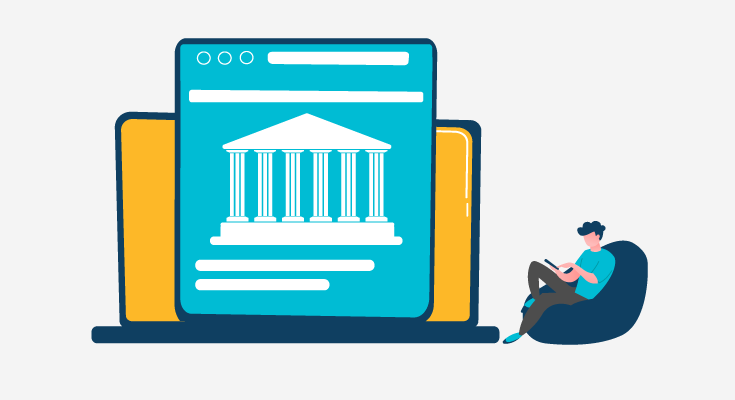Open banking is pretty simple yet completely innovative, it lets you share your bank data with other companies with limited problems. Open banking APIs or the overall process is designed in a way that provides more security and reliability even while using basic financial services like Venmo or Robinhood. With the widespread adoption of open banking, you as a customer will be able to experience the best technologies without having to compromise for cheaper and less secure options.
In the US financial market, Open Banking is just taking baby steps. But the UK market is leading the world in open banking-based financial products and services. For both banks and customers, open banking can open up new avenues and create opportunities for you and your money. Here’s everything you need to know about open banking and how it can affect your financial lifestyle.
What is Open Banking?
Open banking, also known as “open bank data.” is a financial practice that offers third-party financial service providers open access to consumers’ banking, transaction, and open financial data from banks and non-bank financial institutions, using application programming interfaces (APIs). Open banking will allow the networking of accounts and data across institutions to be used by consumers, financial institutions, and third-party service providers. Open banking is pushing innovation which can lead to the transformation of the banking industry.
Here are the key factors for remembering open banking:
- Open banking is a banking system that allows access and control of consumer banking and financial accounts by leveraging third-party applications.
- Open banking has the power to reshape the current level of competition in the banking industry and improve consumer experience tenfolds.
- Open banking can enhance the potential for both promising gains and financial risks as customer data is shared more widely and excessively.
What’s New in Open Banking?
On 9th July 2021, the White House issued a statement in the favor of open banking. President Joe Biden issued an executive order which included a provision encouraging the Consumer Financial Protection Bureau (CFPB) to issue rules that allow customers to download their bank data and offer it to competitors.
The CFPB is tasked to create regulations related to sharing and consumer financial account data online. Joe Biden’s encouragement to Open banking provides CFPB with the required push to boost the task that CFPB was already doing.
In October, CFPB issued an advanced notice of proposed rulemaking, related to building regulations around consumer data sharing. CFPB, which had been focusing on the issue for several years, has collected customer feedback on customer data collection. New rules could still take years to implement.
Years ago, the only way to keep track of the comings and goings of your money was through a monthly mailed bank statement and physical checkbooks. This process has now improved as customers can log into a mobile banking app or website to check on their finances and conduct all kinds of financial activities in one place. For the experience to work well, you need to hand over your keys to the digital portal, your bank account which then allows your app to grab the data for you. It’s also known as screen scraping, and it provides all the information available in your bank account to other companies. And obviously, it’s one of the least secure options available.
Over the years, several banks have been accused of blocking companies from collecting data when you wish to share it with them. FinTech companies have often complained that banks and financial institutions are anti-competitive, while banks state that they’re just trying to protect their customers and their data from parties that can be a threat.
Recently, the situation has changed and FinTechs and Banks have made arrangements for better data sharing among themselves. But there is still confusion if consumers are sharing enough data to support the open banking models.
What Will be The New Opportunities with Open Banking?
Open banking is meant to share customer data in a safer and more secure way compared to just handing over your login credentials to a third-party app, including other bank apps. All the data sharing happens behind the screen so you won’t notice it whenever you log into the bank app or conduct any normal financial activity.
The customer doesn’t have to do anything different, it’s just a newer and faster model of data sharing. Customers still have an app on the phone, the only thing that’s different is the level of security you get and you can be sure that your data is kept safe.
The ability to easily share your financial data with other companies is expected to boost innovation throughout all financial industries. It could also help more people get loans by verifying transaction history instead of checking credit scores. Open banking can also improve the mortgage application process, and reduce the time taken for approval of mortgages.
The widespread adoption of open banking can make huge changes in financial services. Open banking requires financial institutions to spend more money and rethink new ways of securing assets and customers’ data.
How Will Open Banking Affect Customers?
In the end, open banking is designed to make financial activities simpler for you to switch lenders and use tons of FinTech apps. Whether it’s access to a cheaper type of credit, managing personal finance, or accessing better direct payments. There are tons of things that customers can do to make their money more automated and all of it revolves around customer data.
Here are some key points that open banking will improve:
- Increasing access to financial services
- Saving time from opening an account or taking out a loan
- Offering better products and services





